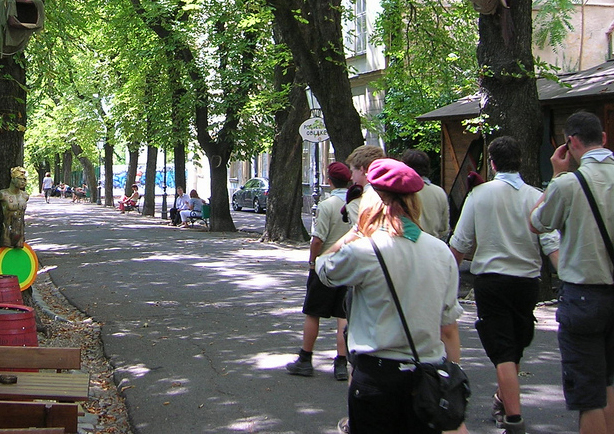New evidence on the health benefits of natural outdoor environments
Press release
25.02.2015

A new study suggested that green spaces are beneficial to general and mental health
Barcelona, 25th February 2015.- It has been suggested that green spaces are beneficial to health, both for general and mental health. A new study, led by researchers from CREAL and published in Environment International, reinforces this relationship.
In research led by CREAL, an ISGlobal alliance research center, it is shown that the presence of green spaces is associated with better self-perceived general health and better mental health. The aim of this study was to evaluate the association between green (parks, fields, etc.) and blue spaces (beaches, rivers, etc.) and health of the population. The researchers also wanted to investigate whether this association was different between men and women, in different socioeconomic status and between urban and rural areas. The study also assessed whether the relationship between natural areas and health could be explained by differences in physical activity or social support.
"There is a growing evidence of the beneficial health effects of natural environments. However, most of the evidence has focused on green spaces and there is little evidence of the health benefits of the blue spaces. There is also little information about the factors that modify this association and the possible mechanisms that may explain it", says Margarita Triguero-Mas, first author of the paper.
This study of the European project Phenotype provides evidences that green spaces are associated with a better perception of people's own health and better mental health, regardless of the degree of urbanization, socioeconomic status and gender. "In addition, our results suggest that these associations are explained by the reduction of stress that is provided by the green spaces and not by physical activity or social support. The results also suggest that small green spaces such as streets with trees are especially important. It should be noted that our study does not provide conclusive results about the possible health benefits of the blue spaces", explained Mark Nieuwenhuijsen, principal investigator of the project “and this needs some further work”.
In the study, cross-sectional data from adults interviewed between 2010 and 2012 as part of the Catalonia Health Survey were used. The collected data included sociodemographic characteristics, self-perceived general health, mental health (depression, anxiety, visits to a psychologist/psychiatrist, medication for mental health problems, etc.), physical activity and social support. The indicators of surrounding greenness and access to natural outdoor environments were derived for residential addresses of the participants.
These new findings, together with evidence from previous studies, reinforce the importance of green spaces to develop healthier cities and towns. "However, future research should focus on the mechanisms underlying the associations between natural environments and health, especially mental health" concludes Nieuwenhuijsen and that “more work is needed in this area in terms of following up people for a longer time and better defining the quantity and quality needed to provide benefits, both for blue space and green space”.
Reference
M. Triguero-Mas, P. Dadvand , M. Cirach, D. Martínez, A. Medina, A. Mompart, X. Basagaña, R. Gražulevi?ien?, M. J. Nieuwenhuijsen. Natural outdoor environments and mental and physical health: relationships and mechanisms. Environment International. Volume 77, April 2015, Pages 35–41



